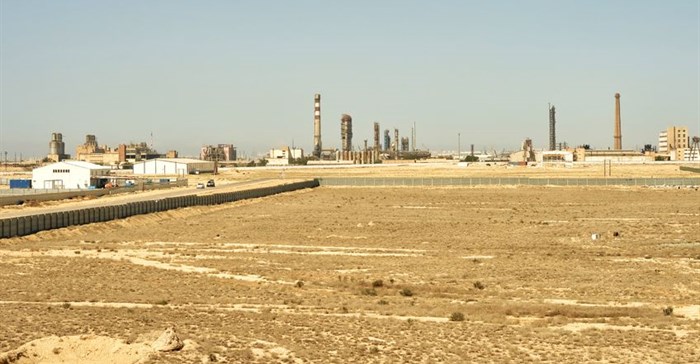Philippa Rodseth on the challenges and opportunities facing local manufacturers

The Western Cape's manufacturing sector, the second largest after financial services, attracts substantial inward investment and state assistance. "The sector employs more than 1.6 million people and accounts for more than 12% of GDP. It is among the top three multiplier sectors in terms of value addition, job creation, export earnings and revenue generation," says Philippa Rodseth, who was recently appointed executive director of the Manufacturing Circle - the founding and strategic partner of the Indaba.
Here, Rodseth discusses the challenges and opportunities that manufacturers are facing in the Western Cape, and how the Indaba plans to help them address or embrace them.
 Tell us more about the Manufacturing Circle, and your new role?
Tell us more about the Manufacturing Circle, and your new role?
The Manufacturing Circle is the voice of South African manufacturing. Its purpose is to promote the interests of manufacturers to enable job-rich growth in the South African economy.
The organisation conducts research and engages with key stakeholders to promote the benefits of manufacturing growth for the broader economy, influence policy and highlight opportunities and key priorities for manufacturing growth. In pursuit of these objectives, the Manufacturing Circle also meets periodically with government ministers, heads of key state-owned entities, provincial and local government leaders, and other business sector leaders.
My role is to develop and implement the organisation's goals, which are to achieve a competitive manufacturing environment, attain a supportive international trade position, and advance the reputation of South African manufactured products.
 Will you be presenting at the Manufacturing Indaba and, if so, on what exactly?
Will you be presenting at the Manufacturing Indaba and, if so, on what exactly?
I have a particular interest in the panel session that deals with Spatial development opportunities: IDZ/SEZs. A new Special Economic Zone (SEZ) Act was signed into South African law in May 2014. The Manufacturing Circle welcomed this initiative as it extends the scope of the previous Industrial Development Zones (IDZ) programme by providing for a more diverse typology of zones, to include Free Zones, Sector Development Zones and Free Ports.

The Manufacturing Circle, however, deemed it necessary to investigate whether there was provision for Single Factory Manufacturing SEZs - these provide incentives to individual enterprises regardless of location. This means that factories would not have to locate within a designated zone to receive incentives and privileges, offering investors flexibility with regard to choice of location taking into account the availability of inputs, skilled labour and infrastructure.
The Manufacturing Circle therefore commissioned a report entitled, Single factory special economic zones policy in South Africa: International observations and implications for South Africa. This was to serve as a basis for an informed discussion and an identification of the type of further work that may be required to address the practicability and desirability of introducing single factory SEZs in South Africa.
The report found that the current SEZ legislation is too limiting and not conducive to implementing single site SEZs. The SEZ Act would, therefore, need changes to create enabling provisions to allow for a single factory zone. The amendments would, however, have to be carefully considered so that they minimise changes to the text of the Act, and strong political will be needed to be successful in this process.
 What are the major challenges and opportunities that local manufacturers are currently facing?
What are the major challenges and opportunities that local manufacturers are currently facing?
The manufacturing sector in general is experiencing challenges with regard to domestic electricity supply constraints, rapid increases in administered prices, labour instability and competition from unfairly incentivised products. These factors impact the sector nationwide.
Notwithstanding this, manufacturing is the second-biggest sector in the Western Cape after the financial services industry, and specific opportunities in the region have been identified.
According to a recent study compiled jointly by PwC, Wesgro and the City of Cape Town, Made in Africa: Western Cape metals and engineering, the Western Cape metals and engineering cluster is well positioned as a hub to fuel growth and attract foreign direct investment. Initiatives and incentives are under way that are expected to enhance the competitiveness of the metals and engineering cluster to include, tax incentives, special economic zones, competitive enhancement programmes and energy incentives.
The study also notes that the Western Cape also has the skills, capacity and infrastructure to service companies in the fast-growing oil and gas industry. In addition, there are many opportunities for multinational firms to manufacture medical devices in the province. Very little is produced in the way of medical devices in SA, with an estimated 95% supplied by imports.
Furthermore, investment opportunities in the renewable energy industry, particularly with regard to solar projects in the Western Cape, are estimated to amount to tens of billions of rand in the next decade. As investment in this sector is being realised, growth will be substantial.
 How will the Indaba help local manufacturers to address/embrace these?
How will the Indaba help local manufacturers to address/embrace these?
A wide range of delegates will attend the Indaba, from both the public and private sectors. Active participation is encouraged, with the aim of initiating conversations on key aspects having an impact on manufacturing, to include challenges and opportunities, available incentives, growth opportunities, access to finance, and strategies for growth and competitive advantage.
For more information, go to manufacturingindaba.co.za or follow @IndabaManufact on Twitter.
About Jessica Taylor
- #BODJHB: Chris Weylandt on the basics of retail - 20 Oct 2017
- Starbucks SA launches rewards programme - 1 Feb 2017
- #BizTrends2017: Emerging trends in merchant payments - 27 Jan 2017
- #EntrepreneurMonth: Umhlanga-based founders buff up their business portfolio - 29 Nov 2016
- #EntrepreneurMonth: Debra Bouwer, Shari Akal and their budding flower business - 24 Nov 2016
View my profile and articles...